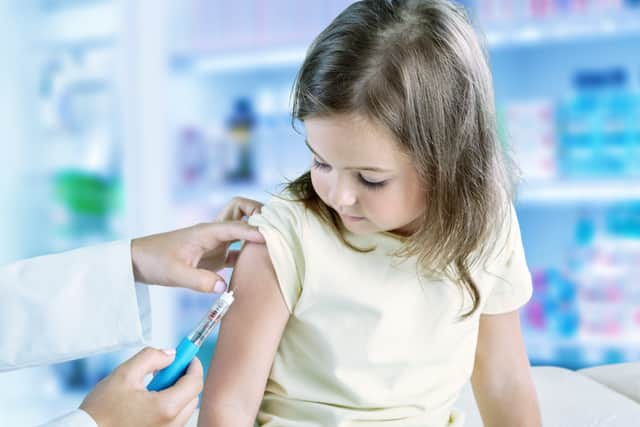Polio vaccine: which children in London are eligible for booster jab from NHS, and vaccine schedule explained
and live on Freeview channel 276
Poliovirus has been detected in London sewage, with children now to be offered a booster dose of the polio vaccine.
But where has the virus been found and which children will be eligible for the vaccine?


Here’s what you need to know.
Where has poliovirus been found?
Advertisement
Hide AdAdvertisement
Hide AdThe virus has been found in sewage in the London areas of Barnet, Brent, Camden, Enfield, Hackney, Haringey, Islington, and Waltham Forest.
The virus has also been found in lower concentrations in areas adjacent to the Beckton catchment area to the south - which is immediately below the Thames - and to the east of Beckton.
It is not clear whether the virus has established itself in these areas or if the detections are due to people from the affected area visiting these neighbouring areas.
The Joint Committee on Vaccination and Immunisation (JCVI) said here have been no confirmed cases of polio and that the risk to the public is low.
Advertisement
Hide AdAdvertisement
Hide AdThis comes after the UK Health Security Agency (UKHSA) declared a national incident in June after traces of the virus were found during routine surveillance at the Beckton Sewage Treatment Works, which serves around four million people in north and east London.
Although it is normal for one to three "vaccine-like" polioviruses to be detected each year in UK sewage samples, the recent discovery has seen the virus detected in a number of surveillances of the sewage.
Who can get a polio booster?
Children aged one to nine in London are to be offered a polio booster vaccination.
The NHS will contact parents when it is their child’s turn to come forward for a booster or catch-up polio dose.
Advertisement
Hide AdAdvertisement
Hide AdIt will start in areas where the virus has been detected and where vaccination rates are low, followed by a rapid rollout across the rest of the London boroughs.
The vaccine uptake in London is already lower than in the rest of the country - at 90% having the correct number of vaccines, compared to 95% nationally.
What is polio?
Polio is a serious infection that’s now very rare as it can be prevented with vaccination.
Although it was officially eradicated in the UK in 2003, it has recently been found in sewage samples.
Advertisement
Hide AdAdvertisement
Hide AdPolio is caused by a virus that spreads easily when an infected person coughs or sneezes and it can also be caught from food or water that’s been in contact with the poo of someone who has the virus.
Dr Vanessa Saliba, Consultant Epidemiologist at UKHSA, said: “Polio is a serious infection that can cause paralysis but nationally the overall risk is considered low because most people are protected by vaccination.”
She added: "It is vital parents ensure their children are fully vaccinated for their age. Following JCVI advice all children aged one to nine years in London need to have a dose of polio vaccine now - whether it’s an extra booster dose or just to catch up with their routine vaccinations. It will ensure a high level of protection from paralysis. This may also help stop the virus spreading further."
Comment Guidelines
National World encourages reader discussion on our stories. User feedback, insights and back-and-forth exchanges add a rich layer of context to reporting. Please review our Community Guidelines before commenting.
